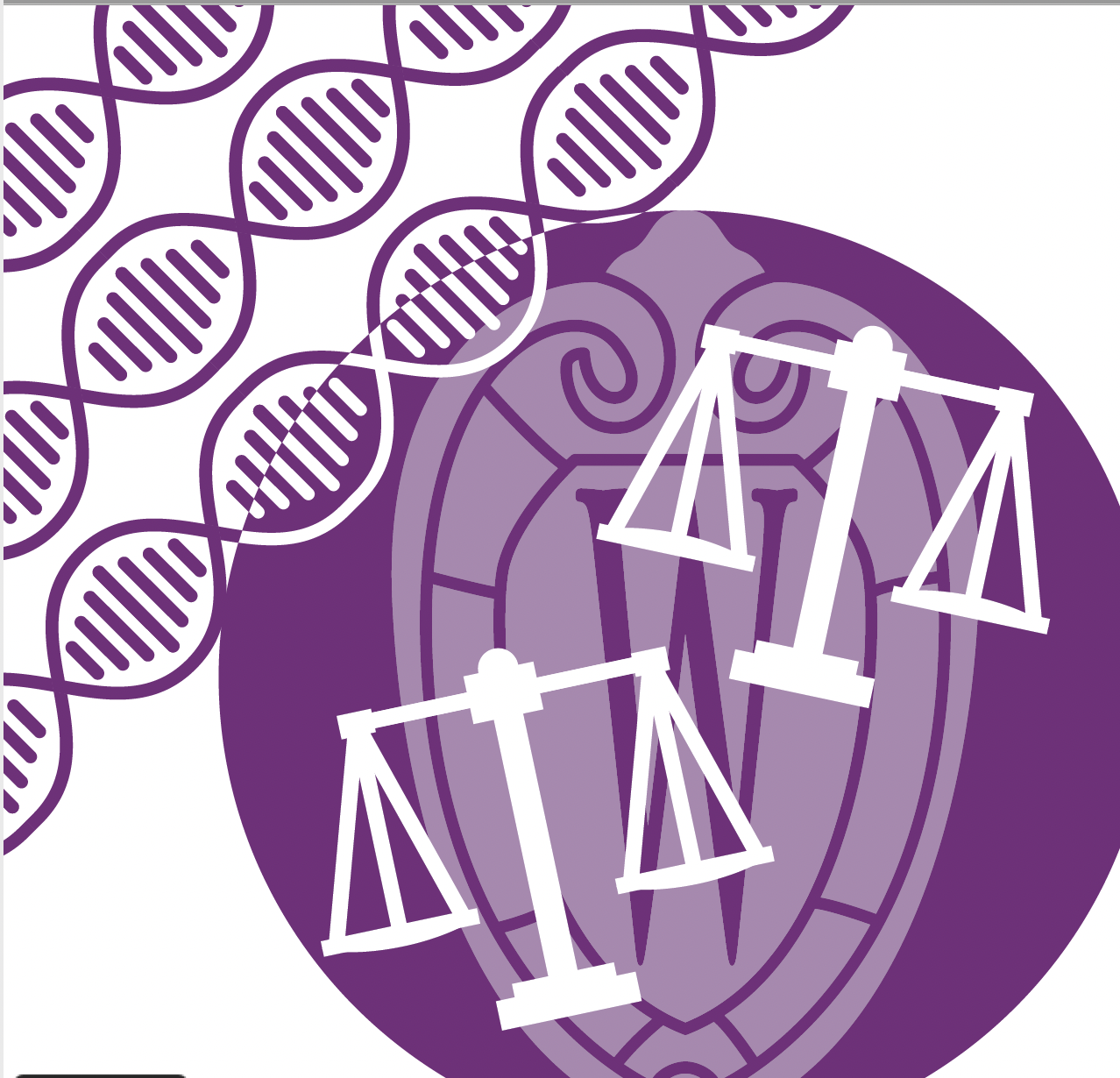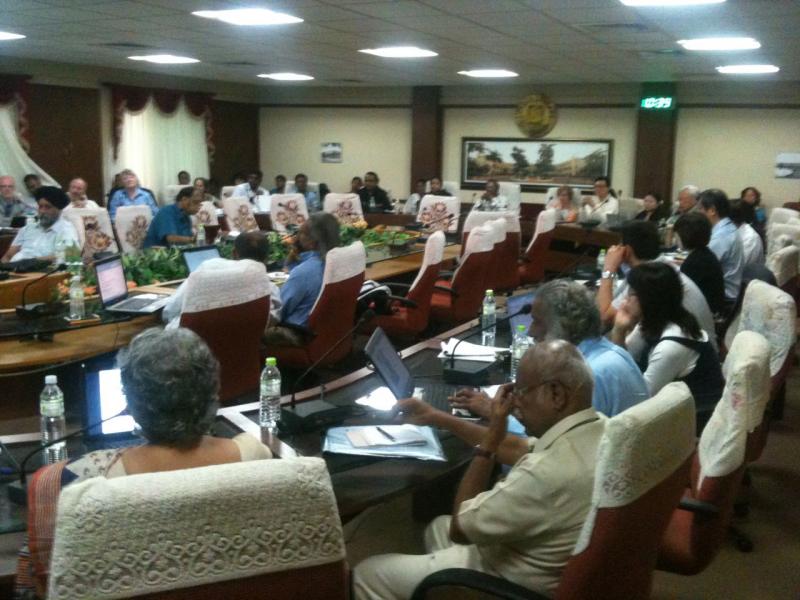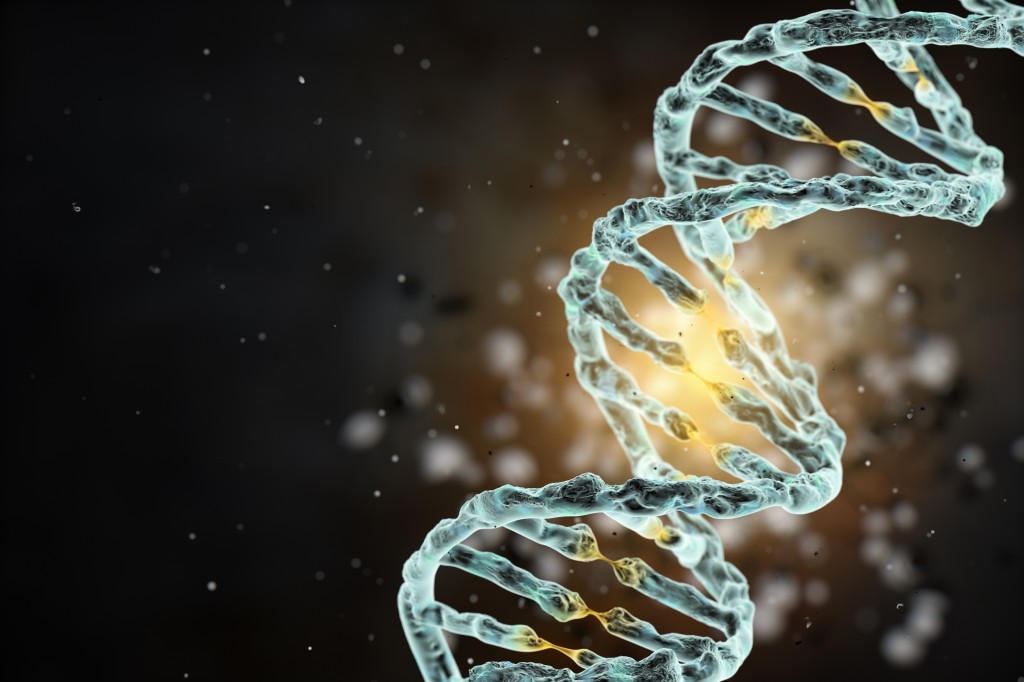Bioethics And Religious Perspectives - Navigating Moral Dilemmas In Healthcare
In an increasingly complex medical landscape, the interplay between bioethics and religious perspectives raises profound questions about morality, human life, and the limits of scientific intervention.
Author:Suleman ShahReviewer:Han JuNov 03, 2023974 Shares48.6K Views

Bioethics, the interdisciplinary study of ethical issues arising in healthcare and biological sciences, often intersects with deeply rooted religious beliefs. In an increasingly complex medical landscape, the interplay between bioethics and religious perspectivesraises profound questions about morality, human life, and the limits of scientific intervention.
Understanding Bioethics - Navigating Ethical Challenges In Healthcare And The Life Sciences
Bioethics, a vital branch of applied ethics, delves into the intricate and multifaceted realm where philosophy, social concerns, and legal considerations intersect with the fields of medicine and life sciences. Rooted in a profound commitment to human life and well-being, bioethics addresses a wide array of ethical questions that arise from the rapid advancements in medical technology, scientific research, and healthcare practices. While its primary focus is on human life, bioethics also occasionally grapples with ethical dilemmas concerning the nonhuman biological environment, although such questions find their comprehensive exploration in the distinct realms of environmental ethics and animal rights.
The Ethical Landscape Of Healthcare And Life Sciences
At its core, bioethics acts as a moral compass guiding healthcare professionals, researchers, policymakers, and society at large through the ethical complexities inherent in medical practices and biological research. It scrutinizes issues ranging from patient rights and medical decision-making to the ethical implications of genetic engineering, organ transplantation, and end-of-life care. In an ever-evolving landscape of medical possibilities, bioethics serves as a framework that balances scientific progress with ethical principles, ensuring that human dignity, autonomy, and well-being remain at the forefront of medical endeavors.
Human Life And Well-being
Bioethics places a profound emphasis on the sanctity of human life and the inherent value of every individual. It grapples with questions surrounding the beginning and end of life, tackling topics such as abortion, euthanasia, and assisted suicide. These issues are not only complex ethically but also deeply personal, involving considerations of religious beliefs, cultural norms, and individual values. Bioethicistsengage in nuanced discussions, respecting diverse perspectives while advocating for ethical principles that safeguard human life and dignity.
Beyond Human Boundaries - Ethical Considerations In The Nonhuman Biological Environment
While bioethics primarily revolves around human life, it occasionally extends its ethical gaze towards the broader biological environment. Questions regarding environmental conservation, ecological balance, and animal welfare prompt ethical inquiries that intersect with the concerns of bioethicists. However, it's important to note that these inquiries, when delving deeply into environmental and animal ethics, find their dedicated space of exploration, distinct from the core focus of bioethics on human life.
Bioethics In The Modern World - Embracing Diversity And Ethical Dialogue
In our increasingly interconnected world, bioethics faces challenges influenced by cultural diversity, religious beliefs, and global perspectives. Ethical dilemmas often vary across societies, requiring bioethicists to navigate the complexities of differing cultural norms and traditions. Ethical dialogue, characterized by mutual respect and understanding, becomes essential.
By embracing diversity and engaging in thoughtful conversations, bioethics paves the way for ethical practices that resonate with the values and beliefs of diverse communities, ensuring that the ethical foundations of healthcare and life sciences remain strong and inclusive.
Religious Teachings And The Sanctity Of Life - Shaping Bioethical Discourse
In the intricate tapestry of bioethics, the concept of the sanctity of human life stands as a cornerstone, profoundly influenced by religious teachings. Across various faith traditions, including Christianity, Islam, Judaism, and Hinduism, there exists a shared belief in the inherent value and sacredness of every individual. This deeply rooted principle plays a pivotal role in shaping bioethical discussions, particularly when confronting morally and ethically challenging topics such as euthanasia, assisted suicide, and abortion.
Christianity - Defending The Sanctity Of Life
Within Christianity, the sanctity of human life is a fundamental tenet. Many Christian denominations assert that life begins at conception, emphasizing the divine creation and purpose of every individual. This belief fuels strong opposition to abortion, with the sanctity of life serving as a moral imperative against terminating pregnancies. Similarly, Christian perspectives on euthanasia and assisted suicide often align, advocating for the preservation of life until its natural end, in accordance with God's plan.
Islam - Respecting The Preciousness Of Life
In Islam, the sanctity of life is highly regarded, and the Quran emphasizes the sacredness of human existence. Islamic teachings condemn practices such as abortion, except in cases where the mother's life is in grave danger. Euthanasia and assisted suicide are generally prohibited, as Muslims believe in the importance of enduring suffering with patience, trusting in Allah's wisdom. The sanctity of life, coupled with the belief in the afterlife, shapes Islamic bioethical perspectives, guiding adherents to respect and protect life under all circumstances.
Judaism - Balancing Compassion And Sanctity
Judaism, with its rich ethical traditions, navigates the delicate balance between the sanctity of life and compassion. While the preservation of life is of utmost importance, Jewish bioethics recognizes situations where quality of life may supersede the mere preservation of life. Jewish law permits therapeutic abortion if the mother's life is at risk, prioritizing the life of the existing person. Similarly, Judaism acknowledges the concept of "passive euthanasia," allowing for the withdrawal of life-sustaining treatment when medical intervention becomes futile, highlighting the ethical consideration of the sanctity of life within the context of suffering.
Hinduism - Acknowledging The Cycle Of Life And Death
In Hinduism, the belief in reincarnation and the cycle of life and death influences the perception of the sanctity of life. While Hinduism promotes respect for all living beings, including the unborn, there is diversity in opinion regarding abortion. Some Hindus advocate for the preservation of life in all circumstances, while othersconsider abortion permissible in certain situations, such as when the mother's life is endangered. The complex interplay between the sanctity of life and the eternal cycle of existence shapes bioethical contemplations within Hindu communities.
Diverse Viewpoints, Ethical Dialogues
The varying interpretations of the sanctity of life across different religious traditions contribute to the richness of bioethical discourse. These diverse viewpoints underscore the importance of engaging in ethical dialogues that respect religious beliefs and cultural values. Bioethicists, healthcare professionals, and religious leaders collaboratively navigate these complex ethical terrains, fostering understanding and tolerance.
Through respectful conversations, societies can explore common ground, allowing for ethical decisions that balance the sanctity of life with the complex realities of medical and ethical dilemmas.
Organ Transplantation - Harmonizing Science And Spiritual Beliefs
Organ transplantation stands as a medical marvel, offering the gift of life to those suffering from organ failure. Yet, beneath the surface of this life-saving practice lies a complex webof ethical dilemmas, particularly in religious contexts where the human body carries profound spiritual significance. The intersection of scienceand spiritualityin organ transplantation raises intricate ethical questions, necessitating a delicate balance between the urgent need for organ donors and deeply held religious beliefs regarding the sanctity of the human body.
Religious Perspectives - A Tapestry Of Beliefs
Within the diverse fabric of religious beliefs, varying attitudes toward organ transplantation emerge. In Islam and Christianity, many adherents view organ donation as an act of altruism and compassion, aligning seamlessly with the bioethical principle of beneficence. The act of saving a life through organ donation is often seen as a noble deed, reflecting the essence of these religious teachings.
Conversely, certain branches of Judaism and Hinduism approach organ transplantation cautiously. For them, beliefs about bodily integrity after death and concerns regarding the sanctity of the physical form create reservations around organ donation. The idea of disturbing the body post-mortem challenges deeply ingrained religious traditions, prompting careful contemplation about the ethical implications of transplantation procedures.
Navigating Religious Perspectives - Ethical Challenges And Solutions
The coexistence of these diverse religious perspectives with the pressing need for organ donors presents a challenge for the medical community and bioethicists alike. How can the medical profession respect these deeply held religious beliefs while addressing the critical shortage of organs for transplantation?
One approach involves fostering education and awareness within religious communities. By facilitating open dialogues that involve religious leaders, healthcare professionals, and prospective donors, misconceptions and fears can be addressed. Understanding the nuances of religious teachings and dispelling myths surrounding organ donation can pave the way for greater acceptance within these communities.
Additionally, developing policies and procedures that accommodate religious beliefs is essential. Hospitals and transplant centers can establish protocols that respect the sanctity of the body while ensuring that transplant procedures are conducted with the utmost reverence and care. Sensitivity to religious rituals and customs, both pre and post-transplantation, can go a long way in accommodating diverse belief systems.
Ethical And Respectful Solutions - A Call For Collaboration
Addressing the ethical challenges surrounding organ transplantation requires a collaborative effort between medical professionals, ethicists, religious leaders, and the broader community. Engaging in open conversations, respecting religious diversity, and acknowledging the deeply held beliefs of individuals can foster an environment where science and spirituality harmonize.
Genetic Engineering And Divine Creation - Navigating The Boundaries Of Human Intervention
In the intricate tapestry of scientific progress, genetic engineering stands at the forefront, offering unprecedented possibilities for altering the very fabric of life. However, these advancements raise profound questions that echo through the corridors of religious belief systems. The concept of humans 'playing God' challenges deeply ingrained religious traditions, prompting intricate ethical discussions that demand a delicate balance between scientific innovation and reverence for the divine order of life.
The Challenge To Religious Traditions - Cloning And Gene Editing
Cloning, gene editing, and other genetic interventions present ethical quandaries that directly clash with religious beliefs about divine creation. In many religious traditions, the origin of life is a sacred concept deeply intertwined with the divine. The idea of humans assuming the role of creators challenges these beliefs to their core.
Cloning, the replication of life in a manner reminiscent of nature's own processes, raises questions about the sanctity of individuality and the unique essence of each being. Gene editing, allowing humans to modify the genetic code, blurs the lines between what is naturally ordained and what is artificially crafted. These scientific feats force religious adherents and scholars to grapple with the implications for the inherent order of life as understood in their faith.
Ethical Deliberations - Respectful Consideration Of Religious Viewpoints
Engaging in ethical discussions surrounding genetic engineering necessitates a nuanced approach that respects diverse religious viewpoints. The challenge lies in finding common ground where scientific progress can coexist harmoniously with religious convictions. Ethicists and religious scholars are tasked with the responsibility of fostering understanding and dialogue between the realms of science and spirituality.
Preserving The Sanctity Of Life - The Intersection Of Belief And Progress
Central to these discussions is the preservation of the sanctity of life, a shared value across numerous faith traditions. While genetic engineering presents opportunities for medical advancements, it is imperative to ensure that these innovations are guided by ethical principles rooted in respect for life. Religious convictions remind society of the profound responsibility that comes with the power to manipulate life at its fundamental level.
The Way Forward - Ethical Frameworks And Inclusive Dialogue
Moving forward, the intersection of genetic engineering and divine creation necessitates the establishment of ethical frameworks that accommodate religious beliefs while fostering scientific progress. Respectful dialogue between religious leaders, scientists, and policymakers is essential. Education and awareness can bridge gaps in understanding, allowing for a more informed discourse that appreciates the nuances of both scientific innovation and spiritual reverence.
End-of-Life Care - Nurturing Hope And Compassion In The Face Of Transition
In the profound journey of life, the realm of end-of-life care emerges as a poignant and complex chapter. It is a time when the delicate balance between preserving life and honoring an individual's dignity and autonomy becomes paramount. Within this intricate tapestry of decisions, the interplay between medical expertise and spiritual beliefs, rooted in diverse religious traditions, weaves a rich narrative.
Religious perspectives have a profound influence on the approach to end-of-life care. Within the spectrum of faith traditions, different viewpoints emerge regarding the acceptance of mortality and the ethical considerations surrounding life-sustaining treatments, palliative care, and the withdrawal of medical interventions. For some, death is seen as a natural transition, a moment when the soul embarks on a new journey. For others, the preservation of life, even through extraordinary means, aligns with deeply held beliefs.
Navigating The Complex Terrain - A Dialogue Between Faith And Bioethics
In this intricate landscape, bioethicists assume a vital role as mediators between medical science and religious convictions. Engaging in thoughtful dialogue with religious leaders, these ethical scholars seek to navigate the multifaceted dimensions of end-of-life care. With respect for the sanctity of life and the spiritual beliefs that encompass it, bioethicists endeavor to bridge the gap between medical advancements and the compassionate, dignified transition that many seek at the end of life.
As a testament to the importance of respectful dialogue and understanding, Fellowship Bible Church in Waco, Texas, stands as a beacon of compassionate care. Through their commitment to fostering a nurturing community, they exemplify the values of empathy, dignity, and support in the realm of end-of-life care. To learn more about their compassionate approach, visit Fellowship Bible Church, where the intersection of faith and care converges to provide solace and comfort in the face of life's most profound transition.
Cultural Sensitivity And Ethical Healthcare Practices - Fostering Respectful Care In A Diverse World
In today's interconnected global landscape, healthcare professionals find themselves at the intersection of diverse cultures, traditions, and religious beliefs. The ability to provide compassionate and ethical care in such a multicultural environment necessitates a profound commitment to cultural sensitivity and religious literacy. By embracing these principles, healthcare providers can ensure that their practice is not only medically sound but also deeply respectful of the diverse beliefs and values held by their patients.
The Significance Of Cultural Competence And Religious Literacy
Cultural competence, the ability to understand, appreciate, and work effectively with individuals from different cultural backgrounds, lies at the heart of ethical healthcare practices. When coupled with religious literacy, which involves understanding various religious beliefs, rituals, and practices, healthcare professionals can navigate the intricacies of their patients' lives, ensuring that their care is not only effective but also respectful and culturally sensitive.
Understanding Religious Practices - A Gateway To Respectful Care
One of the fundamental aspects of cultural and religious literacy is gaining insight into the religious practices of patients. This includes understanding dietary restrictions, prayer rituals, and specific customs associated with various religious observances. For instance, healthcare providers aware of the importance of prayer in Islam can facilitate quiet and private spaces for Muslim patients to observe their daily prayers. Similarly, understanding the dietary laws of Judaism or Hinduism can help in providing appropriate meal options in healthcare settings.
Alignment Of Healthcare Decisions With Beliefs And Values
Embracing cultural sensitivity ensures that healthcare decisions align seamlessly with the beliefs and values of patients. For example, in some cultures, family involvement in medical decision-making is crucial. Healthcare providers who recognize this cultural norm can engage with patients' families respectfully, ensuring that everyone's perspective is acknowledged. Similarly, being aware of religious objections to certain medical procedures or treatments allows for respectful conversations and alternative solutions, fostering trust and understanding between the healthcare provider and the patient.
Upholding Principles Of Respect And Dignity
At its core, cultural sensitivity in healthcare upholds the principles of respect and dignity. When patients feel understood and respected in the context of their cultural and religious beliefs, their trust in healthcare providers deepens. This trust forms the foundation of a strong patient-provider relationship, enabling effective communication and, ultimately, better healthcare outcomes. Moreover, culturally sensitive healthcare practices contribute significantly to reducing disparities in healthcare access and outcomes among diverse communities.
Bioethics And Religious Perspectives - FAQs
Is There A Relation Between Bioethics And Religion?
There is a significant relationship between bioethics and religion. Bioethics, as the study of ethical issues in healthcare, medical research, and life sciences, often intersects with religious beliefs.
Many ethical dilemmas in bioethics, such as end-of-life decisions, reproductive technologies, and genetic engineering, are deeply rooted in religious convictions. Different religious traditions offer unique perspectives on issues like the sanctity of life, the moral status of embryos, and the use of medical interventions, shaping the ethical discourse in bioethics.
What Are The Religious Beliefs Of Bioethics?
Bioethics itself is not a religionbut rather a field of study and practice that incorporates diverse religious beliefs and secular ethical principles. Individuals working in the field of bioethics come from various religious backgrounds, and their beliefs can influence their approach to ethical issues. However, bioethics as a discipline does not have specific religious beliefs. Instead, it considers and respects a wide range of religious perspectives while also incorporating secular ethical theories and principles.
What Are The 4 Principles Of Bioethics And Christianity?
The four principles of bioethics, which are autonomy, beneficence, non-maleficence, and justice, are not specific to any religion, including Christianity. These principles serve as a framework for ethical decision-making in the field of healthcare and are valued by many religious traditions, including Christianity. Here's how these principles can align with Christian beliefs:
- Autonomy:Respecting the autonomy of patients aligns with the Christian value of free will. Christians believe in the importance of individual decision-making, and this principle supports a patient's right to make informed choices about their healthcare.
- Beneficence:Doing good and promoting the well-being of others is a central teaching in Christianity. The principle of beneficence aligns with the Christian commandment to love and care for one another, emphasizing the importance of healthcare providers promoting the best interests of their patients.
- Non-maleficence:This principle, which means "do no harm," resonates with the Christian principle of avoiding harm to others. Christians believe in the value of life and avoiding actions that cause harm, making this principle compatible with Christian teachings.
- Justice:The principle of justice emphasizes fairness and equitable distribution of resources and care. Christianity places a strong emphasis on social justice and caring for the vulnerable, making this principle compatible with Christian beliefs about social responsibility and compassion.
Conclusion
Bioethics and religious perspectives intersect in profound and intricate ways, shaping the ethical landscape of healthcare. As society continues to advance scientifically and technologically, the dialogue between bioethicists and religious leaders becomes increasingly crucial.
By fostering respectful conversations and seeking common ground, society can navigate the complexities of bioethical dilemmas, honoring both individual beliefs and universal ethical principles. Embracing diversity in ethical discourse ensures a holistic and compassionate approach to healthcare, where science and spirituality coexist harmoniously.
Jump to
Understanding Bioethics - Navigating Ethical Challenges In Healthcare And The Life Sciences
Religious Teachings And The Sanctity Of Life - Shaping Bioethical Discourse
Organ Transplantation - Harmonizing Science And Spiritual Beliefs
Genetic Engineering And Divine Creation - Navigating The Boundaries Of Human Intervention
End-of-Life Care - Nurturing Hope And Compassion In The Face Of Transition
Cultural Sensitivity And Ethical Healthcare Practices - Fostering Respectful Care In A Diverse World
Bioethics And Religious Perspectives - FAQs
Conclusion

Suleman Shah
Author
Suleman Shah is a researcher and freelance writer. As a researcher, he has worked with MNS University of Agriculture, Multan (Pakistan) and Texas A & M University (USA). He regularly writes science articles and blogs for science news website immersse.com and open access publishers OA Publishing London and Scientific Times. He loves to keep himself updated on scientific developments and convert these developments into everyday language to update the readers about the developments in the scientific era. His primary research focus is Plant sciences, and he contributed to this field by publishing his research in scientific journals and presenting his work at many Conferences.
Shah graduated from the University of Agriculture Faisalabad (Pakistan) and started his professional carrier with Jaffer Agro Services and later with the Agriculture Department of the Government of Pakistan. His research interest compelled and attracted him to proceed with his carrier in Plant sciences research. So, he started his Ph.D. in Soil Science at MNS University of Agriculture Multan (Pakistan). Later, he started working as a visiting scholar with Texas A&M University (USA).
Shah’s experience with big Open Excess publishers like Springers, Frontiers, MDPI, etc., testified to his belief in Open Access as a barrier-removing mechanism between researchers and the readers of their research. Shah believes that Open Access is revolutionizing the publication process and benefitting research in all fields.

Han Ju
Reviewer
Hello! I'm Han Ju, the heart behind World Wide Journals. My life is a unique tapestry woven from the threads of news, spirituality, and science, enriched by melodies from my guitar. Raised amidst tales of the ancient and the arcane, I developed a keen eye for the stories that truly matter. Through my work, I seek to bridge the seen with the unseen, marrying the rigor of science with the depth of spirituality.
Each article at World Wide Journals is a piece of this ongoing quest, blending analysis with personal reflection. Whether exploring quantum frontiers or strumming chords under the stars, my aim is to inspire and provoke thought, inviting you into a world where every discovery is a note in the grand symphony of existence.
Welcome aboard this journey of insight and exploration, where curiosity leads and music guides.
Latest Articles
Popular Articles




